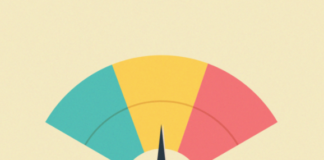Tag: research
Trust Falls – Are We in a New Phase of Corporate...
From The Scholarly Kitchen: We may be in a new phase of corporation-funded research. According to the 2016 Science & Engineering Indicators from the National...
Study Identifies Cause of Weight Gain From Antipsychotic Drugs
From UPI: A team of researchers from the University of Texas Southwestern Medical Center found that the serotonin 2c receptor is responsible for weight gain...
The Loneliness of Having an Illness Science Doesn’t Understand
In this interview for Science of Us, science writer Julie Rehmeyer tells of her struggles with chronic fatigue syndrome, including how the medical system failed her...
Newly-Revised List of Industry-Independent Experts for Journalists
From HealthNewsReview: For nine years, HealthNewsReview has hosted a one-of-a-kind list of health care industry-independent experts for journalists. The list has now been revised with new...
Female Brains are More Active?
From Discover Magazine: Headlines in various news sources reporting on a new study claim that women's brains have been found to be more active than...
The Man With the Most Famous Brain in Science
From STAT: In 1998, a graduate student at the Montreal Neurological Institute named Colin Holmes underwent 27 brain scans and combined them into one high-quality...
Critical Thinking Skills are More Important Than IQ
From The British Psychological Society: A recent study found that critical thinking skills are a better predictor of one's ability to make wise, effective life...
Marshmallows Aren’t Likely to Fix Low-Income Kids’ Problems
From BOLD Blog: Starting in the late 1960s, researchers conducted an experiment offering young children a choice between one marshmallow at the present or two...
DARPA Wants to Build a BS Detector for Science
From Wired: A new grant from DARPA will fund research into ways to determine which research from the social and behavioral sciences is credible, and which has flawed methodology...
Predatory Journals Hit by ‘Star Wars’ Sting
From Neuroskeptic: Several "predatory" scientific journals — those that charge publication fees to authors without providing the editorial and publishing services offered by legitimate journals — have accepted a...
How do we Know if a Drug Actually Works?
From Scientific American: The effectiveness of a particular medical treatment is often highly subjective and dependent on each individual's definition of the term "effective." Many...
All Tip, No Iceberg: A New Way to Think About Mental...
From The Conversation: The search for a single, identifiable cause underlying each mental disorder has yielded very few useful results. New research suggests that a network...
A Memoir of Chronic Fatigue Illustrates the Failures of Research
From The New Yorker: In her new book Through the Shadowlands, Julie Rehmeyer chronicles her struggles with chronic fatigue syndrome, or systemic exertion intolerance disease (S.E.I.D.),...
What Are “Hard” and “Soft” Drugs?
From Neuroskeptic: A new paper examines the often arbitrary distinction between "hard" and "soft" drugs, recommending that scientists avoid using these classifications in research publications.
Article →
Robert Whitaker: The Astonishing Rise of Mental Illness in America
We discuss Robert's 2010 book, Anatomy of an Epidemic, which is arguably the definitive account of the realities of psychiatric drugs and completely lays bare the astonishing rise in mental ill health despite the availability of psychiatric drugs.
Half of Low Intensity CBT Clients Relapse Within 12 Months
From The British Psychological Society: A recent study on low intensity CBT, a short-term form of CBT involving self-help books and internet exercises that is...
A University Ethics Scandal Turns Into a Business Opportunity
From City Pages: In a 2014 University of Minnesota research scandal, a young man was coerced into an experimental drug study conducted by his psychiatrist that...
Panels That Developed Treatment Guidelines Had Industry Ties
From STAT: A recent analysis found that a large portion of depression treatment guidelines was developed by individuals with financial ties to the pharmaceutical industry.
"Of 172...
Colleges Get Proactive in Addressing Depression on Campus
From The New York Times: The number of college students with mental health concerns is rapidly increasing, straining many universities' mental health and counseling centers. Colleges...
David Healy: Making Medicine Safer for All
Doctor David Healy from Bangor University in Wales talks about prescribing practice, medicine safety and pharmaceutical regulation.
Do Antidepressants Increase Risk of Adult Suicide?
From From Insults to Respect: It is commonly assumed that antidepressants increase the risk of suicide in children and young adults, but not in adults...
Some Physical Conditions Are Linked With Increased Suicide Risk
From The Huffington Post: New research shows that 17 physical health conditions, including sleep disorders and diabetes, are associated with an increased suicide risk. Patients...
A Radical Hypothesis: Give Patients Drugs They Know Don’t Work
In this interview for Vox, Ted Kaptchuk discusses his research on the effectiveness of giving open-label placebos - sugar pills that the doctors admit are...
The Ketamine Consensus?
From Discover Magazine: A group of psychiatrists from the American Psychiatric Association has recently released A Consensus Statement on the Use of Ketamine in the...
The Crisis of Expertise
From Aeon: Experts have been wrong many times throughout history, from nutritional scientists' claims that eggs might be lethal in the 1970s to the Nobel...

































